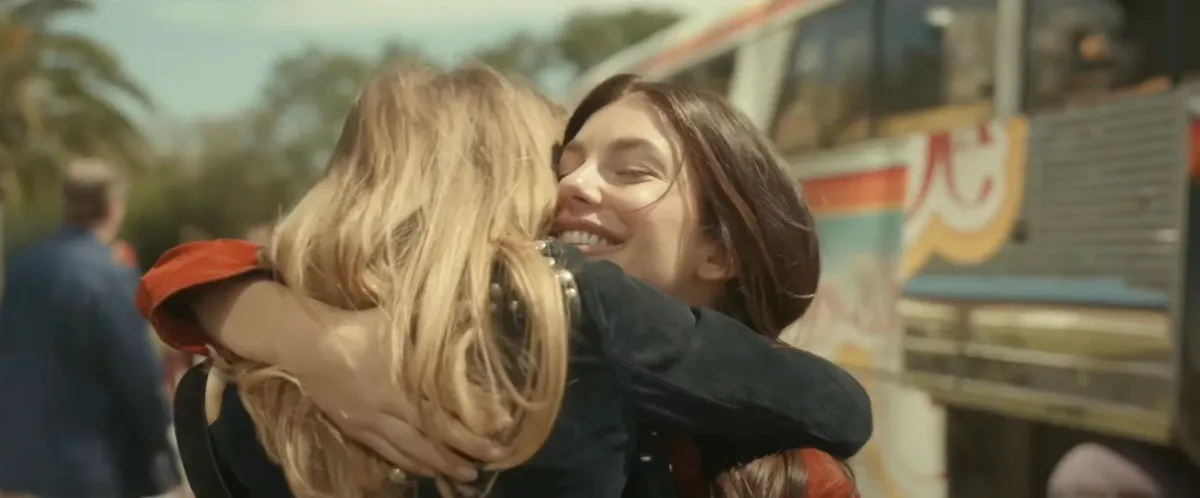Last Friday, we saw the conclusion of Amazon’s much-awaited adaptation of the popular novel Daisy Jones & The Six. As someone who didn’t even know about the novel prior to this show, I was surprised by how much I liked it, and though I was a little miffed by the ending, I ultimately walked away from this show feeling really impressed.
One of the most impressive things about it, from my perspective, was how the show wrote its women. Too often, big-budget adaptations of beloved properties end up being written in very impersonal, unrealistic ways, especially when it comes to how their women are written. I was half-expecting the ladies of Daisy Six to be one-dimensional caricatures—but in the end, I found that they were so well depicted, I could actually see myself and other women in my life in them.
We can start with the titular Daisy Jones, who, while at times a frustrating character to watch, felt very true and honest. Daisy was passionate and creative, yet she spent most of her life having to fight to get her way. As a result, she’s quick to lash out or assume that she’s devalued, which causes her to act in ways that are destructive, yet ultimately make sense.
Because she’s beautiful, it would have been all too easy for the writers to create that frustrating, trope-y narrative surrounding her where all the men fall for her, and all the women deride her. Instead, we get something beautiful: we see Daisy able to stand on her own amongst these men, while the women support her. This was first apparent to me when we see Daisy enter the studio for the first time, and, seeing that all the gawking is making her uncomfortable, keyboardist Karen Sirko forces all the men to leave. She gives Daisy a knowing look that says, I get it, I’ve been there. I’ve got you.
And throughout the series, we see this kind of support between women constantly. It’s a subtle, yet incredibly effective thread that gives the show an edge over some of its contemporaries, in the sense that you can really tell that women played a prominent role in writing it. We see Karen and Daisy constantly looking out for each other, holding each other in tough moments, and making eye contact when things get a little out of control. There’s never a sense that they’re just solely The Two Women In The Band, who orbit around each other without any cares: they truly and honestly care about each other.
But then, the glue of it all is Camila, whom I absolutely adored. Despite being part of a frustrating love triangle, Camila is unwaveringly kind towards Daisy, without seeming like she was written just to be a “martyr mama.” As an artist herself, she understands the passion that drives both Daisy and her husband Billy, and she wants to see that passion bear fruit. It’s Camila who helps both Karen and Daisy find a home within the band, understanding that it might be intimidating to work with a bunch of men. And ultimately, though her heart is broken so many times by Billy, and though she does get understandably angry with Daisy, there is never a moment where she places all of the blame on “the other woman.” If anything, she places most of it on Billy, which I found very refreshing. She never kowtows to his bullshit, she’s always upfront and stands up for herself, even when it’s hard.
Finally, we have Simone, whom I really wish we got to see more of. Simone starts out as a backup singer who is used to people in the industry pushing her around, and it’s only through intense bravery (leaving LA and her abusers there, despite knowing only one person in NYC) that she’s able to finally create a career that she loves. My only complaint with Simone’s narrative is that she feels like she belongs on a different show, in the sense that the moments where she’s the central focus give her big Main Character Energy. Yet due to the nature of the narrative, and her role within it, those moments fall flat as she’s once again relegated to a role as one of Daisy’s biggest supporters. Simone deserved her own show, honestly.
And on the subject of complaints, yes, the show wasn’t perfect with these women. For one thing, apparently, Karen wasn’t supposed to look so glamorous: In the books, she was a lot more boyish and plain, which would have been refreshing to see on-screen. For another, so much of Camila’s role centers around motherhood and maternal instincts, which feels regressive considering that’s such a common stereotype put on Latina characters.
Ultimately though, in the grand scheme of things, I think Daisy Jones & The Six did something fantastic with its women, and I hope it sets a new standard moving forward. Relationships between women are very specific sorts of things that require a feminine perspective to properly convey, and even if I can’t relate to being 5’7 with long red hair, I still connected quite a bit with Daisy because of her relationships with other women. It was just one more thing about this show that made it as cool as it is.
(Featured Image: screengrab via Amazon)










Published: Mar 31, 2023 03:18 pm